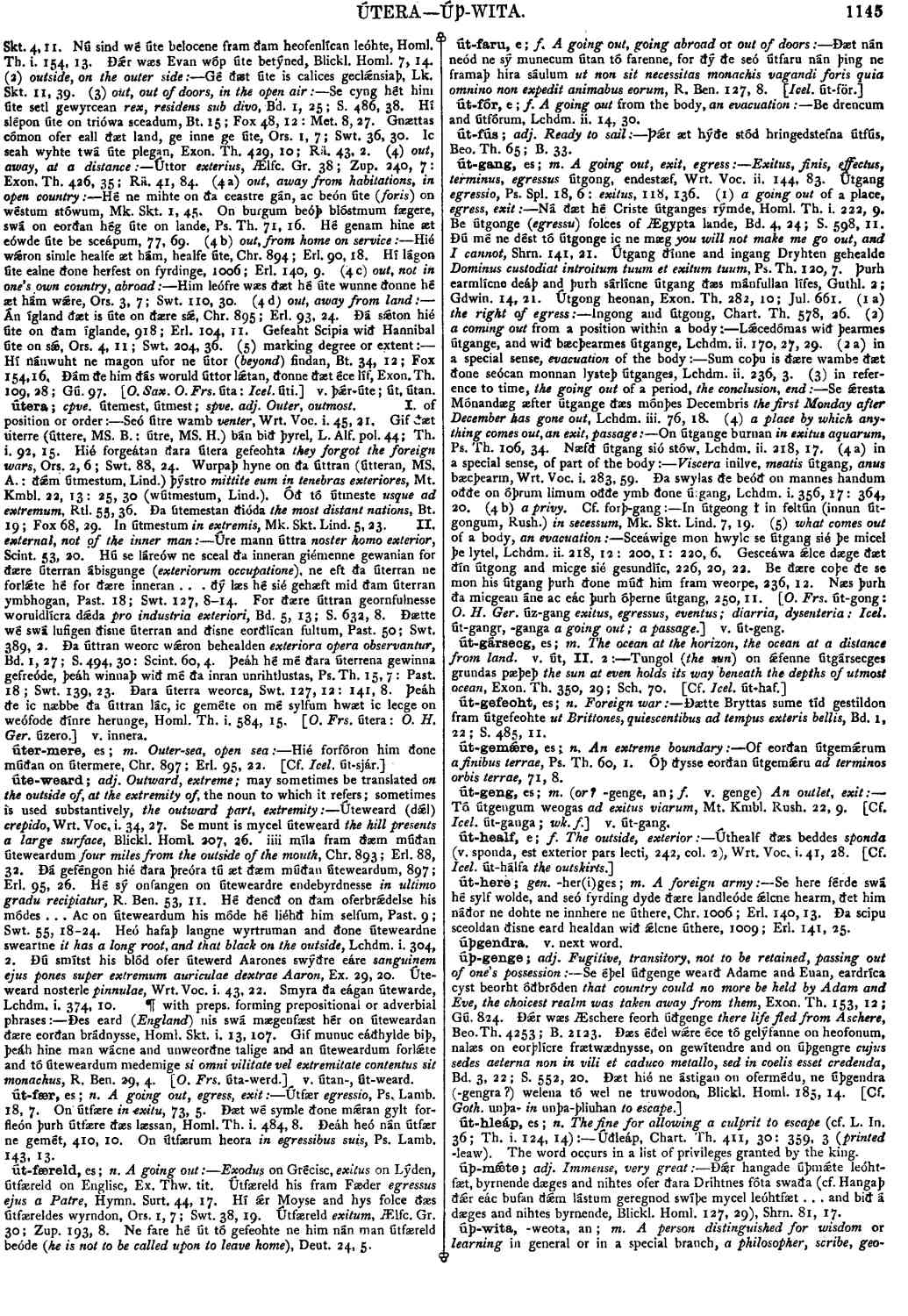úþ-genge
- adjective
-
Se éþel úðgenge wearð Adame and Euan, eardríca cyst beorht óðbróden
that country could no more be held by Adam and Eve, the choicest realm was taken away from them,
- Exon. Th. 153, 12; Gú. 824.
-
Ðǽr wæs Æschere feorh úðgenge
there life fled from Aschere,
- Beo.Th. 4253; B. 2123.
-
Ðæs éðel wǽre éce tó gelýfanne on heofonum, nalæs on eorþlícre frætwædnysse, on gewítendre and on úþgengre
cujus sedes aeterna non in vili et caduco metallo, sed in coelis esset credenda,
- Bd. 3, 22; S. 552, 20.
-
Ðæt hié ne ástigan on ofermédu, ne úþgendra (-gengra?) welena tó wel ne truwodon,
- Blickl. Homl. 185, 14.
Bosworth, Joseph. “úþ-genge.” In An Anglo-Saxon Dictionary Online, edited by Thomas Northcote Toller, Christ Sean, and Ondřej Tichy. Prague: Faculty of Arts, Charles University, 2014. https://bosworthtoller.com/34138.
Checked: 0